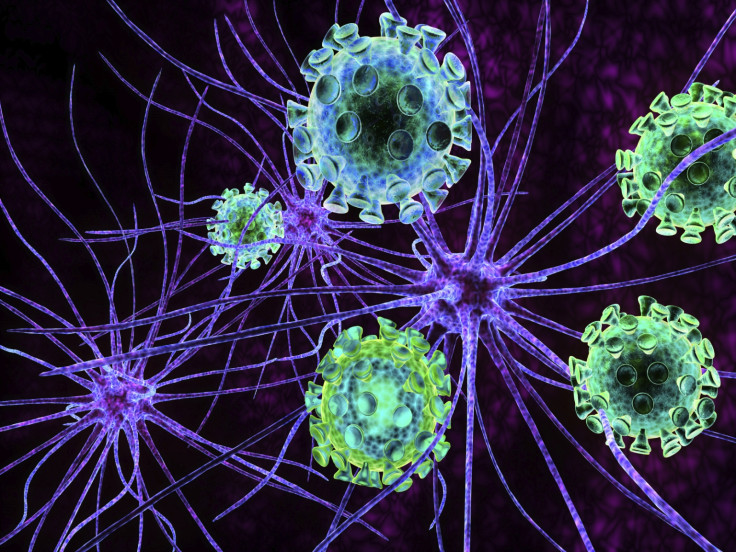Software to switch off cancer: Code discovered that can reprogramme diseased cells

Scientists might have found a way to turn cancer cells back into normal ones through a process involved in the production of microRNAs (miRNAs). Researchers at the Mayo Clinic in the US say their finding could lead to a new strategy for cancer therapy based on reprogramming cells back to normality.
Panos Anastasiadis, senior investigator of the study published in the journal Nature Cell Biology, said their discovery represents "an unexpected new biology that provides the code, the software for turning off cancer". The "code" was discovered after scientists realised adhesion proteins, which keep cells stuck together, interact with the microprocessor involved in the production of miRNAs.
These miRNAs regulate the expression of a group of genes. When normal cells come into contact with one another, a subset of miRNAs supresses genes that lead to cell growth. When the adhesion is disrupted through cancer cells, the miRNAs are not regulated in the normal way and cells grow uncontrollably. After making this discovery, scientists were able to restore normal miRNA levels in cancer cells to reverse the uncontrolled growth in laboratory experiments.
Their findings came about after conflicting reports about adhesion proteins that are needed for normal epithelial tissues to form. These have long been considered tumour suppressors but other studies contradicted this, as the adhesion proteins E-cadherin and p120 catenin are present in tumour cells and are needed for their progression.
Anastasiadis said: "That led us to believe that these molecules have two faces – a good one, maintaining the normal behaviour of the cells and a bad one that drives tumorigenesis." While this hypothesis was correct, how the behaviour was regulated was still unclear, so they looked to another protein (PLEKHA7) that maintains the normal state of cells through a set of miRNAs. When this protein was lost, the miRNAs was misregulated and the cells became oncogenic.
"We believe that loss of the apical PLEKHA7-microprocessor complex is an early and somewhat universal event in cancer," Anastasiadis said. "In the vast majority of human tumour samples we examined, this apical structure is absent, although E-cadherin and p120 are still present. This produces the equivalent of a speeding car that has a lot of gas (the bad p120) and no brakes (the PLEKHA7-microprocessor complex).
"By administering the affected miRNAs in cancer cells to restore their normal levels, we should be able to re-establish the brakes and restore normal cell function. Initial experiments in some aggressive types of cancer are indeed very promising."
Lead author Antonis Kourtidis added: "The study brings together two so-far unrelated research fields – cell-to-cell adhesion and miRNA biology – to resolve a long-standing problem about the role of adhesion proteins in cell behaviour that was baffling scientists. Most significantly, it uncovers a new strategy for cancer therapy."
© Copyright IBTimes 2025. All rights reserved.






















